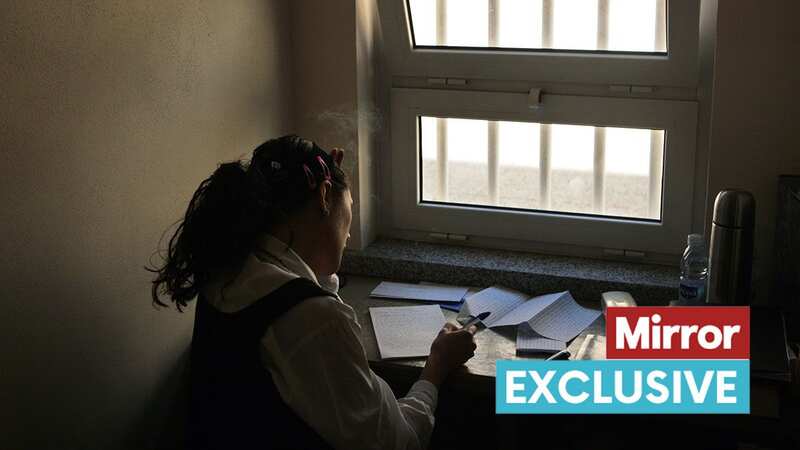'My kids had phone calls cut off when I was in jail - the rules need to change'

A mum who spent two years in prison before being released on appeal is pleading with jails to help keep prisoners’ kids connected with their parents.
Cheryl, whose name has been changed to protect her identity, told the Mirror she “finds it really hard to understand” why prisons don’t make it easier to keep mums in touch with their kids. She criticised only being able to speak with her kids for a limited time due to phone credit rules, as well as not being able to easily use allowances to buy her children Birthday presents.
An estimated 17,000 children are affected by the imprisonment of a mother every year and many will be separated on Mother’s Day this Sunday. A major pilot of prison-based social workers, trialled in two women’s prisons, shows “clear and incontrovertible evidence” of the need for them.
The Prison Advice and Care Trust (Pact), which is commissioned by the Government to provide family services in more than half of the country’s prisons, is now calling for dedicated social workers to be introduced in all women’s prisons. Research has found 95% of children are forced to leave home when their mother goes to prison as they have no other adult to take care of them. The study shows that supporting relationships helps both the mothers and their children.
Cheryl, now a mum-of-three, was in custody between 2006 and 2009. She was forced to leave her daughter and son, then 12 and five, after being convicted for helping to set up a shop that was used for drug dealing. She denies she knew the shop was being used for criminal activity and was later released after appealing her case.
 Man in 30s dies after being stabbed in park sparking police probe
Man in 30s dies after being stabbed in park sparking police probe
Speaking about her time in prison, she said: “For Birthdays, Christmases, I’d have the good old Argos catalogue and I remember literally becoming like a seven-year-old where I would circle things in the Argos catalogue, and then call my friends and ask them, please can you buy this for my children?” She said she felt like she was constantly letting her kids down, including when she couldn’t speak to them on the phone for long.
“You don't want to cut your kids off on the phone and go: ‘I have to go now I've got no more money,’” she said. “There’s no way you can phone a mobile. If you phone a mobile, you’re on the phone for less than a minute and that’s probably £4-5 gone of your credit. I think there should be allowances to have regular contact with your children that is separated from calling a boyfriend.”
The study, carried out by Cardiff University, showed prison-based social workers played a significant role in managing self-harm and the risk of suicide among inmates. There were nearly 20,000 incidents of self-harm in women’s prisons last year – the highest on record. It means on average every woman in prison self-harmed around six times in the 12 months to September 2023. Pact has warned that separating mothers from their children is a key driver of increasing self-harm.
One female prisoner told researchers having a dedicated social worker made her feel “part of her son’s life” again. “My son’s been booked in for the vaccine and they asked the Pact social worker to ask me for my permission. I was like, wow, I felt like a mum for the first time in years,” she said.
Another woman said: “My son’s got autism and he’s got learning difficulties, and visits are quite difficult for him. But Pact was able to arrange for us to have the family room, so it was a quiet room... Oh, it was lovely, it made such a difference. My son was more at ease. I knew he just felt calmer. I got to sit on the sofa with him and give him a cuddle properly, rather than having to talk over a table.”
Andy Keen-Downs, chief executive of Pact said: “Today’s report sets out the crucial role of prison-based social workers in bridging the gap between mothers in prison and their children on the outside. Separation from children is one of the major factors driving the deeply worrying levels of self-harm in women’s prisons.
“It’s been over three years since a Government-commissioned review recommended that every women’s prison should have dedicated social workers. We have the evidence that it works - now it’s time for ministers to invest in this simple, common-sense measure.”
A Prison Service spokeswoman said: “Mothers in custody need the best possible support - which is why we’re piloting dedicated social workers with four already in post. But we know more needs to be done, which is why we’ve also hired specialist mother and baby liaison officers in every women’s prison, introduced additional welfare checks and stepped up screening and social services support so pregnant prisoners get the necessary care.”
Read more similar news:
Comments:
comments powered by Disqus

































